Do You Know the Real History of Thanksgiving?
Happy Thanksgiving to everyone celebrating this special holiday. It’s a time when families come together to give thanks and enjoy a feast. It’s also the ultimate test of kitchen skills, with so many dishes to prepare for so many people.
I often remind readers that Thanksgiving gives a glimpse into the life of a professional cook. If you’re cooking for ten or more tomorrow, imagine preparing meals for ten times that many people six days a week.
The History of Thanksgiving
Regardless of the first Thanksgiving version you hear, the story often revolves around what was served on that rustic table. We picture pilgrims in crisp hats and Native Americans sharing the land’s bounty. These images show up everywhere—from festive cornucopias to the cheerful platters brought out just for this day.
But the real story of Thanksgiving is less charming. It involves long, crowded journeys on smelly, rickety boats and the struggle to survive in a harsh wilderness. That version doesn’t quite fit with holiday cheer. So, we’ve polished it into something easier to swallow—like Grandma’s second helping of sweet potato pie. It’s a version that feels more at home next to the glowing candles and warm family laughter.
The Real Thanksgiving Story
Most of us think of Thanksgiving as a single meal shared between starving Puritans and generous Native Americans. The popular story tells us these kind hosts brought wild game and shared their food and survival knowledge with the settlers.
In truth, Thanksgiving has roots in several harvest festivals throughout history. Many moments could claim the title of the “original Thanksgiving feast.”
One account mentions a brief meal in the early 1620s between the Wampanoag and Puritan settlers. This comes from a letter written at the time, but it describes an event that was neither repeated nor widely recorded. Some historians believe this letter acted more as New World propaganda, aimed at attracting settlers with stories of abundance and harmony.
Another version offers a more optimistic take. It describes a three-day feast where the Wampanoag shared food with the Mayflower pilgrims, who had lost half their group to the harsh journey. Weak and unfamiliar with the land, the survivors learned to hunt and harvest from their Native neighbors.
However, darker accounts exist. One recounts how, in the 1630s, English and Dutch settlers used a Native harvest festival as an opportunity for violence. They attacked the tribes, turning a celebration into a tragedy.
Thanksgiving’s history, like all histories, depends on whose story you hear.
Today’s Thanksgiving Story
At its heart, the Thanksgiving story resonates deeply during the holiday season. It doesn’t matter which version you embrace—the marketing ploy, the goodwill of two cultures coming together, or the struggles of settlers taking land that wasn’t theirs.
What matters is the essence of gratitude. In early America, food was scarce. Sitting and eating with loved ones symbolized survival, hope, and a future worth striving for.
Every culture has a tradition of giving thanks for the fall harvest. From Celtic and Germanic traditions to Asian ceremonies, people have paused to honor nature’s gifts and reflect on the forces that sustain them. These timeless feelings of gratitude, warmth, and hope still define Thanksgiving today.
In America, Thanksgiving grew into a national tradition. George Washington declared it a day of thanks, and Abraham Lincoln made it official by designating the last Thursday in November. Even Franklin Roosevelt adjusted the date to the fourth Thursday.
The holiday is now a symbol of resilience and hope. As Americans, we’ve turned one historical moment into an enduring celebration. Around the table, we honor the past’s hardships while savoring the present’s abundance. Most importantly, we believe in a better future built together.
Happy Thanksgiving, and Good Eating!

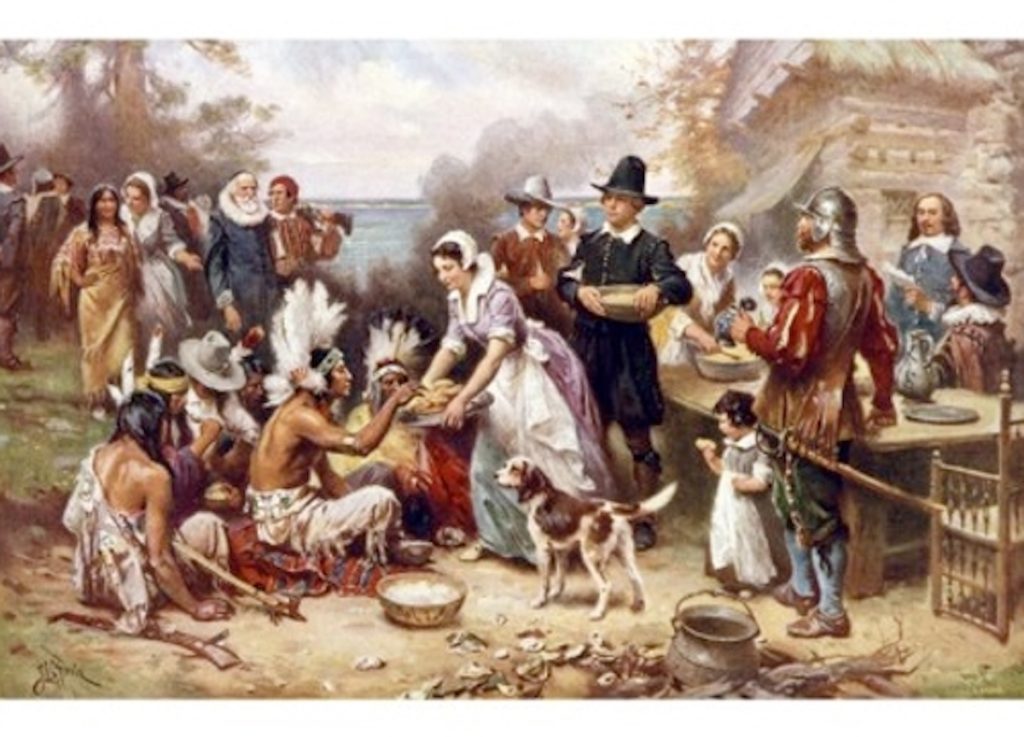

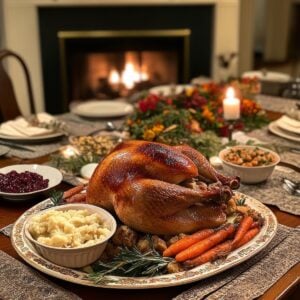
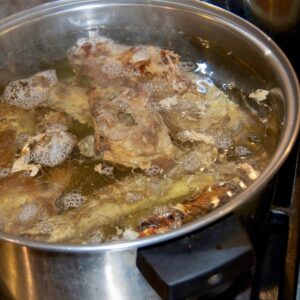
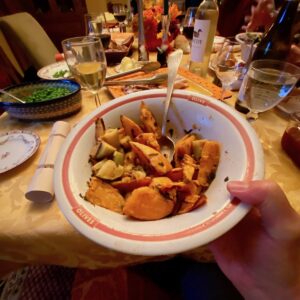
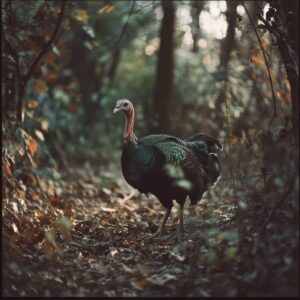

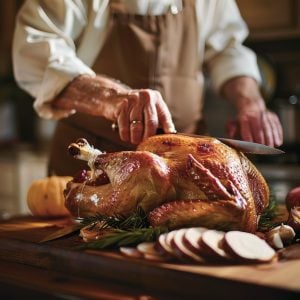
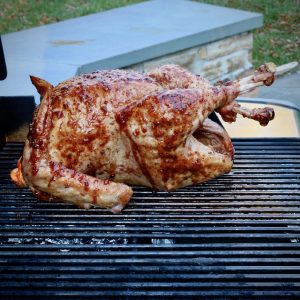
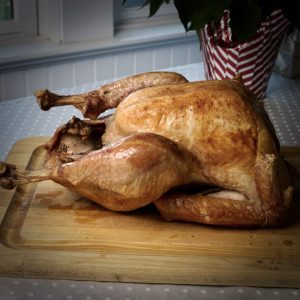


2 Responses
I’m a bit disappointed that your account of the history of Thanksgiving neglected to mention that regardless of the details of the feast, the primary purpose for the Puritans was to thank God for his provision. I know this is a cooking blog, but “[acknowledging] the providence of Almighty God” (to quote Washington is the main point, not the food.
Hi David, good point and thanks for pointing that out. – RG
Dear David,
People of all religions celebrate Thanksgiving. The history of Thanksgiving is to be “thankful” for all that we have no matter who or what you believe in. No need to criticize someone’s article because it doesn’t match your beliefs.
Thank you for writing this article RG..
Hi Dana, thank you for your comments and I agree, everyone can take what they want from this holiday for whatever they believe and be thankful. Have a wonderful Thanksgiving. – RG